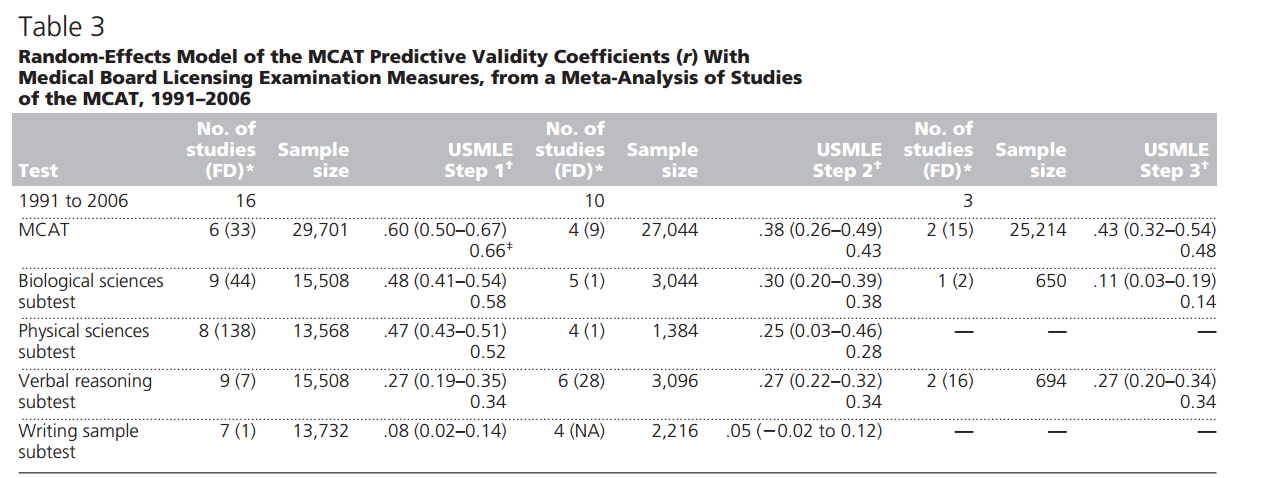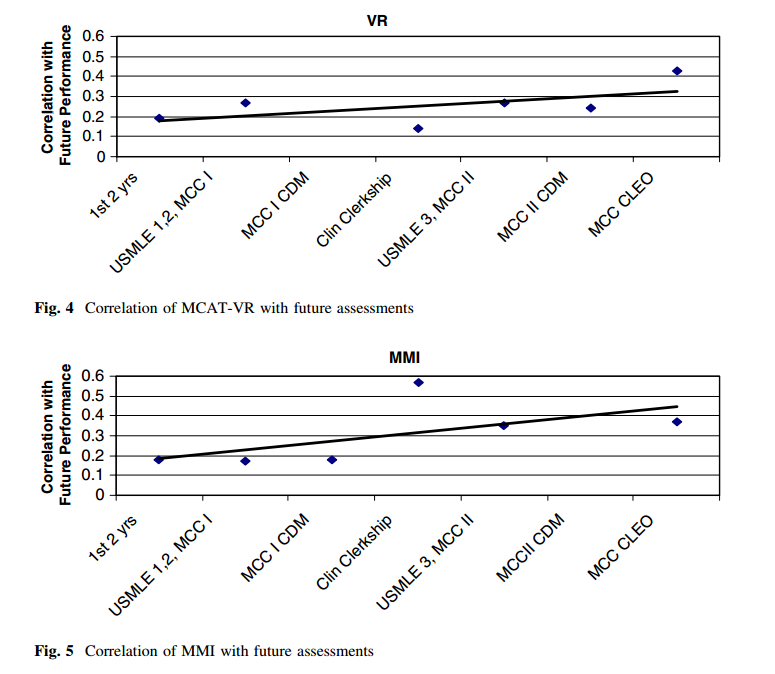An interesting tidbit that always crosses my mind is how much of a correlation there is of time spent studying for the MCAT to MCAT performances. The MCAT is supposed to be an examination of inherent skill, which I think it is for the most part, but I don't think it's out of the question that studying exclusively for the format and lexicon of the MCAT can increase composite scores by ~3-5. From my personal experience, 100% of people who took Kaplan or hired some private tutor received the cash to pay for it from their parents. I'm not naive enough to think I can generalize this, as I know there probably are some pre-meds have worked hard to be able to afford such costs themselves; although I have not met any (though I'm sure I will meet one in a reply to this comment). The point being, some are fortunate enough to have been able to study/prepare for the MCAT, and I'm curious as how much this skews the results and interpretation of this exam.
I would be so bold as to say this is a major factor of the jump between high BS/PS scores and low scores. Assuming test-takers have already taken the pre-reqs, they can freely review notes/formulas and gain a paradigm competent enough to excel in the sciences. These sections do not solely prompt regurgitation of cold facts, but they present unseen data to the test-taker and ask for quantitative AND qualitative assessment. Many pre-meds have a life-science undergrad major, so they have plenty of exposure to interpreting data during high-stress periods of time (e.g., exams in Molecular Biology); thus they have honed a skill that is reflected by >90% PS/BS subscores.
Now, how can some of us prepare to sculpt a proper mindset for VR? The only advice that I received to improve VR (prior to a recent post I read on SDN about two weeks ago) is drop a fat load of money. The only viable option presented to me was to take a course, but this would have pushed my UG graduation back a semester (which would have caused too many complications in my life). At any rate, I went without studying for VR, even for a second. I don't think I need to tell you how that turned out...
Sorry for the long, seemingly pointless, and non-productive post. I just subjectively think that if MCAT scores/subscores have any implications on USMLEs, then they may have a very practical aspect in nature (though not exclusively why); money is a very real thing. Loans? At least they provide you with enough grocery money. Scholarships? White male and not interested in golf, so not qualified for much. Job? Sure, but I'll waste all my money on med school applications. Parents? Drinking sure makes fools of us all.
Unfortunately, the struggles of my life are not unique, and for many of us, they can manifest into mediocre and sub-par stats. I'm not asking for sympathy or words of encouragement, but I am trying to make a case that standardized scores are a poor reflection on the potential of many students. What they attempt to portray is convoluted by 'life variables' that must be justified within a personal statement (which I foolishly focused on my commitment to patients and the community). All I can do, though, is hope Adcoms give me and others like me a chance. A subscore 7 is low, yes, but it is by no means a measure by how an individual can greatly impact the lives of others.
tl;dr




 .
.